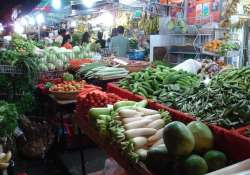Permanent solution on food security in WTO rules is must: India
United Nations: In a stern message, India has told the UN general assembly that developing countries must have the freedom to use food reserves to feed the poor "without the threat of sanctions" and a

United Nations: In a stern message, India has told the UN general assembly that developing countries must have the freedom to use food reserves to feed the poor "without the threat of sanctions" and a permanent solution on food security with necessary changes in WTO rules is a must.
"The issue of food security is central to the pursuit of poverty eradication and sustainable development in developing countries and must be treated with the same urgency as other issues, if not more," counsellor in the Indian mission to the UN Amit Narang said in a UN general assembly session on 'Macroeconomic Policy Questions: International Trade and Development'.
He termed as "paradoxical" that just as the international community is assigning a high priority to food security as part of the Post-2015 Development Agenda there seems reluctance in addressing the important issue as part of global trade rules.
"A permanent solution on food security with necessary changes in WTO rules, if required, is a must and cannot be kicked down the road," Narang said.
He said that India had participated actively and "in good faith" in the ninth ministerial conference of the WTO in Bali in December 2013 and the country remains committed to the Bali decisions, including the one on trade facilitation.
"India is a signatory to all the Bali decisions and has no intention of going back on them. The concern that India has been constrained to flag, arises from the uneven progress on the Bali decisions," Narang said.
"While all focus seems to be on the agreement on trade facilitation, the same sort of commitment is not evident on other Bali decisions, in particular the agreement on food security," he said.
Narang stressed that the issue of food security must be taken forward in the WTO in the same time frame as other decisions taken in Bali such as trade facilitation.
"Overall balance is important even in a limited package of outcomes. The Bali outcomes were negotiated as a package and must be concluded as such," he said, adding that "developing countries such as India must have the freedom to use food reserves to feed their poor without the threat of sanctions."
He expressed hope that the international community will join hands for the implementation of the Bali decisions in a balanced manner and as a single undertaking.
He said that India has stressed that trade and investment and an open, rules-based, transparent and non-discriminatory WTO-based trading system can play an important role in restoring global growth.